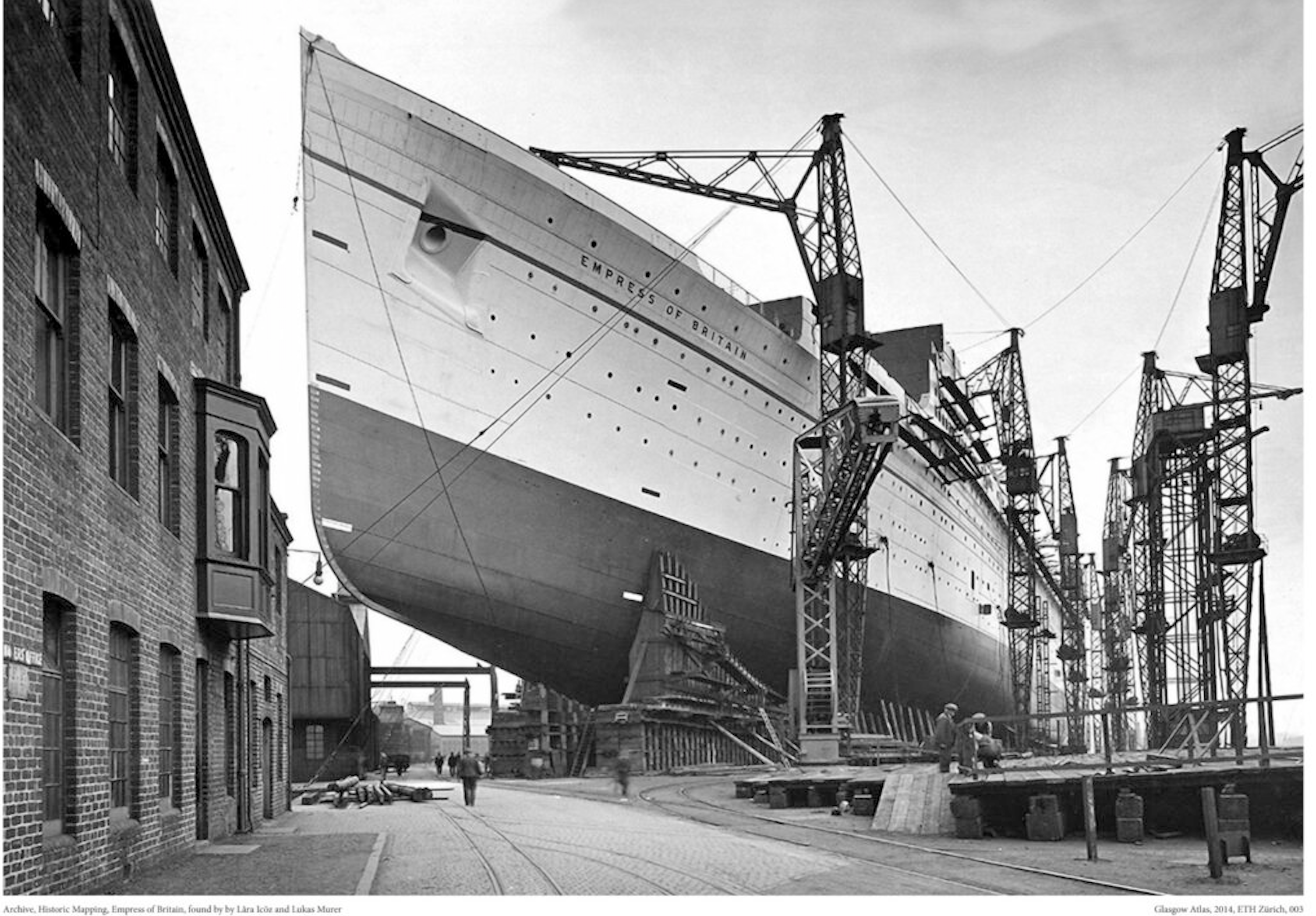Sea Machines
-
Click here (Zoom link) to register.
“Sea Machines” is a one-day symposium that interrogates marine technology for the history and theory of architecture. From canoes and cargo ships to submarines and offshore drilling rigs, maritime vessels show how design has been employed to imagine, manoeuvre, conquer, and exploit the environments and ecosystems of the sea.
The sea has long been cast as the inverse of the habitable terracentric world. Depictions of storms, shipwrecks, and underwater monsters haunt the art and literature of coastal societies, serving as warnings to those who might venture into the blue expanse. Yet, across cultures and throughout history, humans have constructed elaborate structures to facilitate the crossing and even occupation of the ocean.
Recent scholarship in the blue humanities has shed light on the profound ways that oceans influence politics, economics, science, and culture. Aquatic environments have conditioned everything from human diets, artistic traditions, trade networks, and settlement patterns. Whereas architects and historians have studied harbours and ports, far fewer have looked at the vessels that traversed and inhabited the open water. These “sea machines” signal the outer limits of a period and place’s techno-environmental imagination. What architectonic skills did designers, shipwrights, and navigators employ in the construction and operation of ocean structures? How did the forms and materials of water-based vessels speak to larger ideological and environmental forces, including those tied to colonization and slavery, capitalism, and the climate? And how might infrastructure linked to offshore extraction (e.g., fishing, pearl farming, coral and deep-sea mining, oil drilling, etc.) provide a specifically architectural way to evaluate the relationship between human and non-human entities across the land and sea divide?
“Sea Machines” brings together members of the Daniels Faculty and a diverse roster of internationally recognized scholars and practitioners with an interest in environmental history, technology, and design. By examining ships and other naval machines, the talks interrogate specific historical and regional forms and landscapes. The study of maritime spaces is timely and of wide interest for scholars and practitioners across the design disciplines, especially given the sea’s increasing precarity in the face of climate change. Ultimately, the symposium highlights the central role played by architecture in charting a future environmental and technological reality.

Speakers include:
-
Keller Easterling, Yale University, School of Architecture
-
Larrie Ferreiro, George Mason University, Department of History and Art History
-
Carola Hein, TU Delft, Faculty of Architecture
-
Niklas Maak, Frankfurter Allgemeine Zeitung
-
Meredith Martin, New York University, Department of Art History and Institute of Fine Arts
-
Prita Meier, New York University, Department of Art History and Institute of Fine Arts
-
Sara Rich, Coastal Carolina University, Program in Art History
-
Margaret Schotte, York University, Department of History
-
Elliott Sturtevant, Columbia University, Graduate School of Architecture, Planning, and Preservation
-
Gillian Weiss, Case Western Reserve University, Department of History
INTRODUCTION (10 a.m. - 10:30 a.m. ET)
10:00 a.m. - 10:30 a.m. Opening Remarks, Christy Anderson and Jason Nguyen
SESSION 1: INFRASTRUCTURE (10:30 a.m. - 11:50 a.m. ET)
10:30 a.m. - 10:50 a.m. Keller Easterling, "ISO 1161"
10:50 a.m. - 11:10 a.m. Carola Hein, "Oil on Water: The Global Petroleumscape and the Urbanization of the Sea"
11:10 a.m. - 11:30 a.m. Prita Meier, "Below the Waterline: Dhows and the Politics of Heritage in the African Indian Ocean"
11:30 a.m. - 11:50 a.m. Discussion
SESSION 2: CULTURE (1 p.m. - 2:20 p.m. ET)
1:00 p.m. - 1:20 p.m. Niklas Maak, "Phalansteries at Sea"
1:20 p.m. - 1:40 p.m. Meredith Martin and Gillian Weiss, "Sun King at Sea"
1:40 p.m. - 2:00 p.m. Elliott Sturtevant, "Traveling the Heat Line: The 'Great White Fleet' as Climatic Media"
2:00 p.m. - 2:20 p.m. Discussion
SESSION 3: ENERGY (2:30 p.m. - 3:50 p.m. ET)
2:30 p.m. - 2:50 p.m. Sara Rich, "Naufragic Architecture in the Anthropocene"
2:50 p.m. - 3:10 p.m. Margaret Schotte, "Water vs. Wood: Desalination Machines and the Shimpboard Space, c. 1695"
3:10 p.m. - 3:30 p.m. Larrie Ferreiro, "The Evolution of the Naval Architect, 1600-2000"
3:30 p.m. - 3:50 p.m. Discussion
4:00 p.m. - 4:30 p.m. Closing Remarks, Christy Anderson and Jason Nguyen
Organizers:
-
Christy Anderson, University of Toronto, Daniels Faculty and the Department of Art History
-
Jason Nguyen, University of Toronto, Daniels Faculty

